Poha is an easy and delicious Indian breakfast recipe popular in western and central India. Made with flattened rice, onion, and potatoes and seasoned with mild spices, curry leaves, peanuts, and cilantro, this recipe also makes up for a quick mid-day snack.
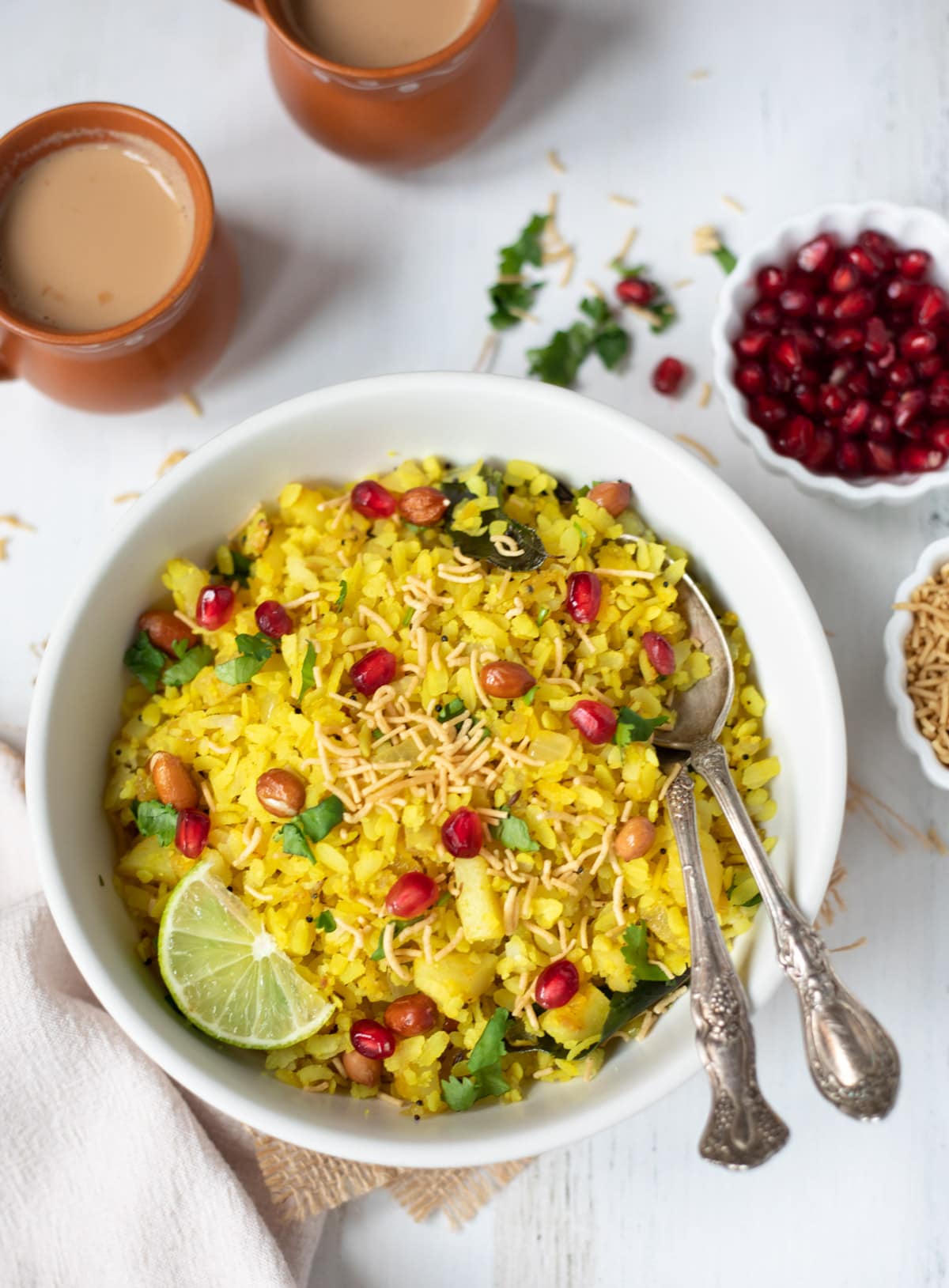
My mother-in-law is from Indore, and over there, poha with jalebi is a tradition for breakfast. It is one of the most popular street foods there. The first thing that comes to her mind for breakfast is poha.
I also found the poha there was different than the Kanda Poha I was used to in Mumbai or that my mom made.
Indori Poha is khatta meetha..which means sour and sweet. Fennel seeds are added to the poha, which gives it a wonderful taste and aroma. Poha, when served, is topped with Ratlami sev (now we do it with bhujai) and pomegranate seeds. The most unusual one added as a garnish is chopped onions. But once you have it, you might start enjoying the crunch!
On the other hand, in Maharashtra, peanuts are added to poha, which is a must in authentic Maharashtrian Kanda Batata Poha (kanda means onions, and batata means potato).
I love poha in any way. And it is a weekly ritual in my house. Poha with Masala Chai is like weekend morning done right!
So, the poha I am sharing today has the goodness of both Indore and Maharashtra poha. Hope you enjoy it!
You might enjoy other popular Indian breakfast recipes – Sabudana Khichdi, Khaman Dhokla, and Semiya Upma.
Table of Contents
What is Poha?
Poha is basically rice flakes that have been parboiled, rolled, and flattened. In English, poha is called flattened rice or beaten rice.
They vary in thickness and have uneven edges. They carry a bland taste and can absorb a large amount of water. The medium and thin variety of poha can become more mushy than the thick variety. I highly recommend using a thick variety of poha for this recipe. The thin variety is best for my poha chivda recipe.
You can also find poha varieties with varying colors due to the ingredients they are made from – Red and brown poha made from red and brown rice respectively. These varieties can be used to make this poha recipe.
Poha is easy to cook and can be a light, delicious, and nutritious breakfast or mid-afternoon snack. It can be used to make both sweet and savory recipes.
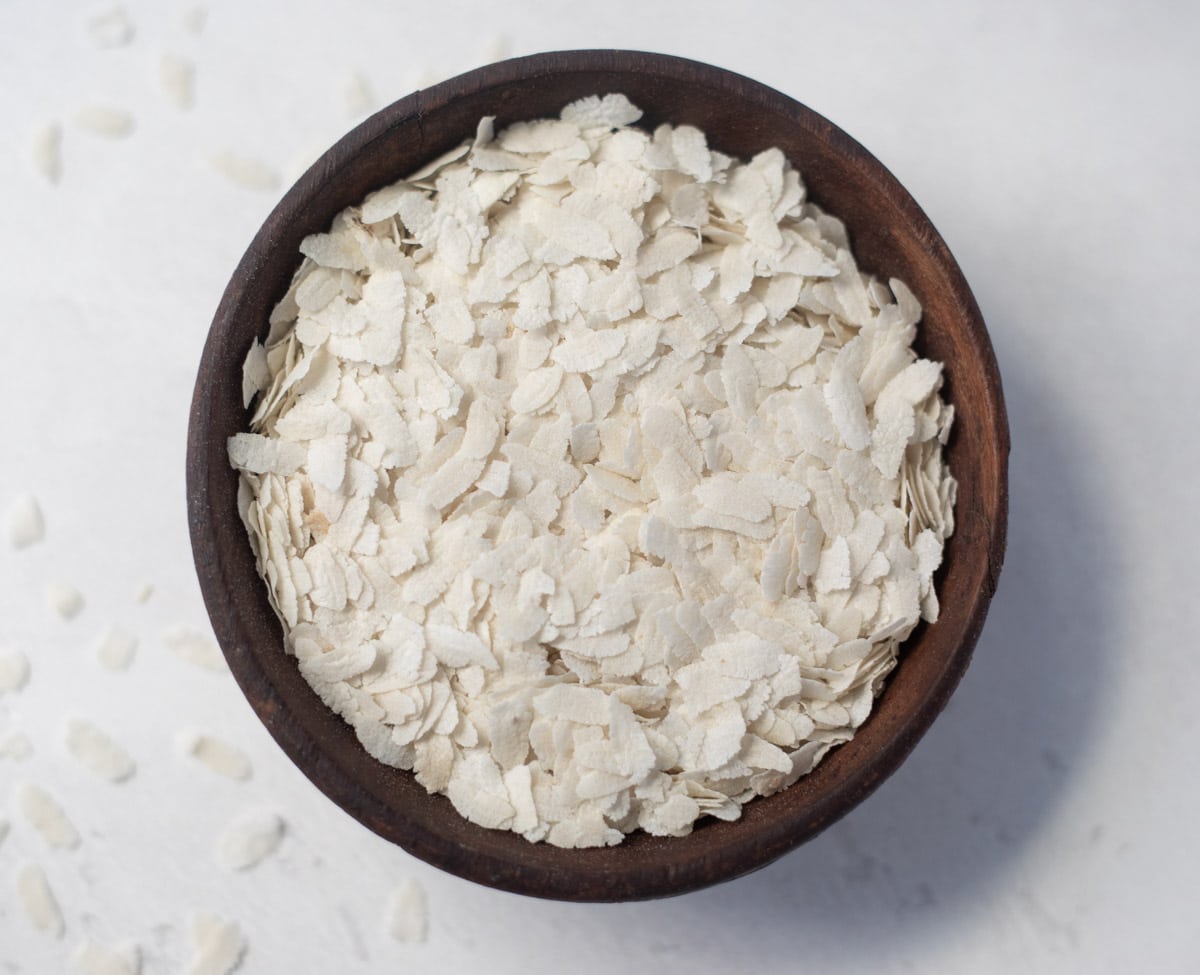
This flattened rice or poha is used to make the popular breakfast dish called “Poha.” The flattened rice is mixed with aromatics such as curry leaves, onions, and seasonings, along with add-ons such as potatoes, green peas or peanuts.
In Maharashtra, poha is often served garnished with cilantro/coriander leaves and freshly grated coconut. In Indore, you will also find it served with raw chopped onions, bhujia (thick sev), and pomegranate seeds.
Variations
Maharashtrian Poha: The Maharashtrian poha is also known as Kanda Batata poha, where “Kanda” means onions and “Batata” means potatoes; it is garnished with grated coconut and peanuts.
Indori Poha: The Indori poha is garnished with sev, sliced onions, and fennel seeds.
Jain Poha: You can make poha without onions for a Jain variation.
Lemon Poha: While I always love to add lime or lemon juice at the end as a garnish for poha, you can add a little extra lemon juice and make Lemon Poha. You might also like the Lemon Rice recipe.
Vegetable Poha: You can also add other veggies like diced bell peppers, green peas, corn, or grated carrots to make vegetable poha.
How to Make Poha?
Before making poha, you need to wash it well under running water and let it rest in a strainer. Ensure that all the poha flakes are wet.
Then, gather the required ingredients: onions, potatoes, peanuts, and spices. Dice the onions and potatoes along with fresh green chilies.
- Place a heavy bottom pan on the stovetop, add some oil, and let it heat on a medium-high flame.
- Then add peanuts to the oil, if you like, and sauté them well. You can skip this step if you don’t like peanuts or are allergic to them.
- Once the peanuts are well roasted, remove them from the pan and set them aside on a dry plate.
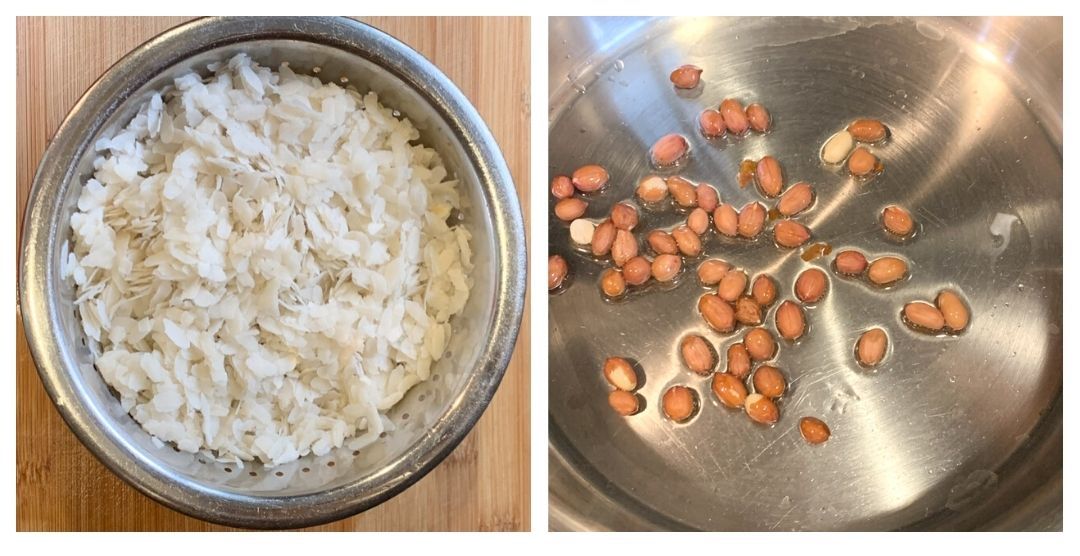
- Then add the cumin and mustard seeds to the oil and let them sizzle a bit.
- Add the curry leaves, sliced green chilies, and diced onions to the oil and sauté them well.
- Then add the diced potatoes, mix them well with onions, and cover the pan for 2-3 minutes.
- Then, open the lid and let the potatoes cook on medium-high heat. Break a potato with a spatula to check if it is cooked well. You want the potatoes to be cooked well before adding the poha.
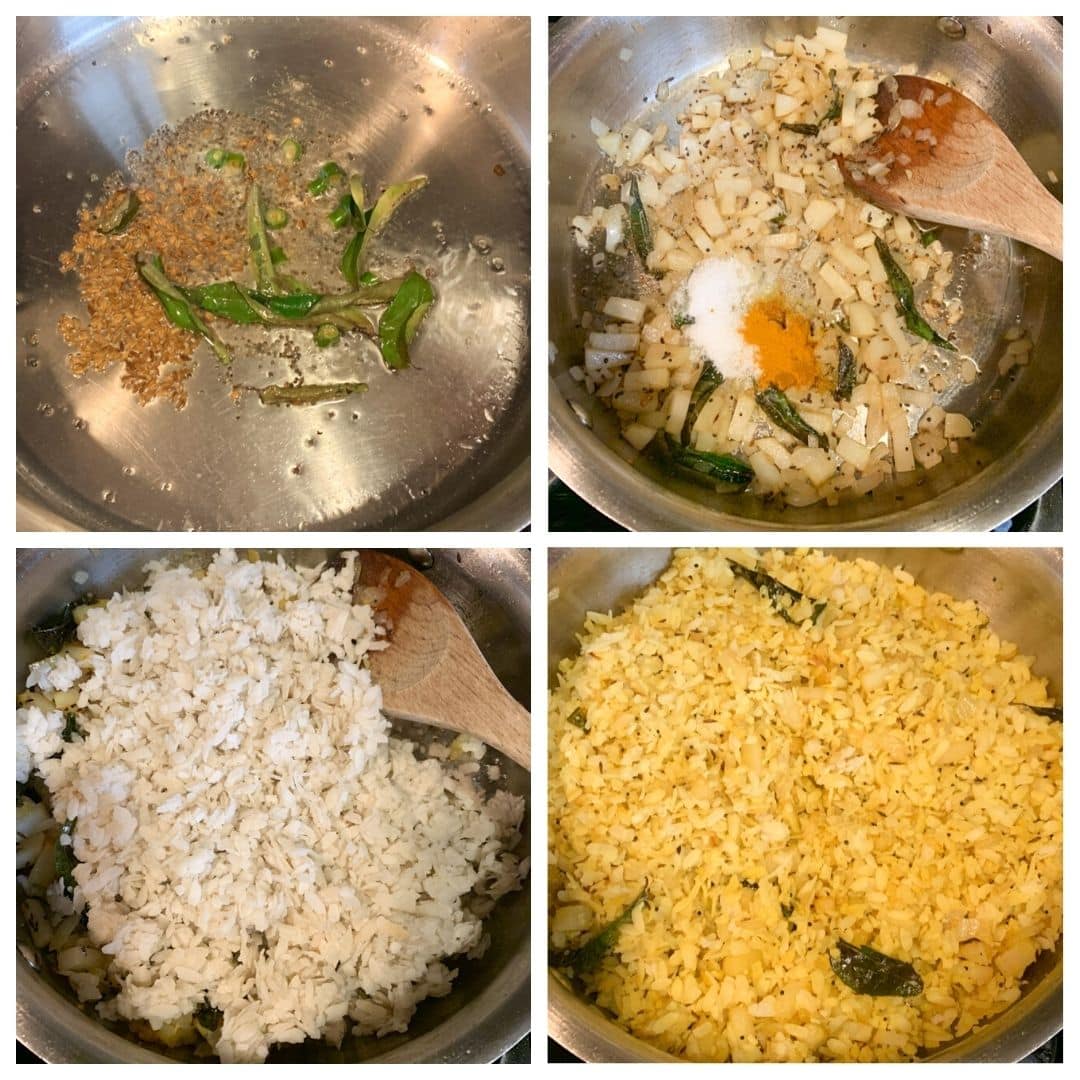
- Then add turmeric, salt, sugar, and the strained poha to the pan. Keep mixing them all gently till the poha becomes yellow in color.
- Once you add poha to the pan, turn the heat to low so that it doesn’t stick to the pan. Also, it stays hot until you mix all the ingredients thoroughly.
- You can cover the pan for a few minutes to absorb the flavor in the poha. If the poha seems dry, you can sprinkle some water on it and cover it with a lid.
- Finally, turn off the heat and open the lid. Sprinkle some fresh lime juice along with the roasted peanuts (if using) that you set aside.
- Taste the poha and adjust the salt according to your preference. Garnish this delicious breakfast poha with fresh cilantro leaves or any other garnishes like sev or pomegranate seeds.
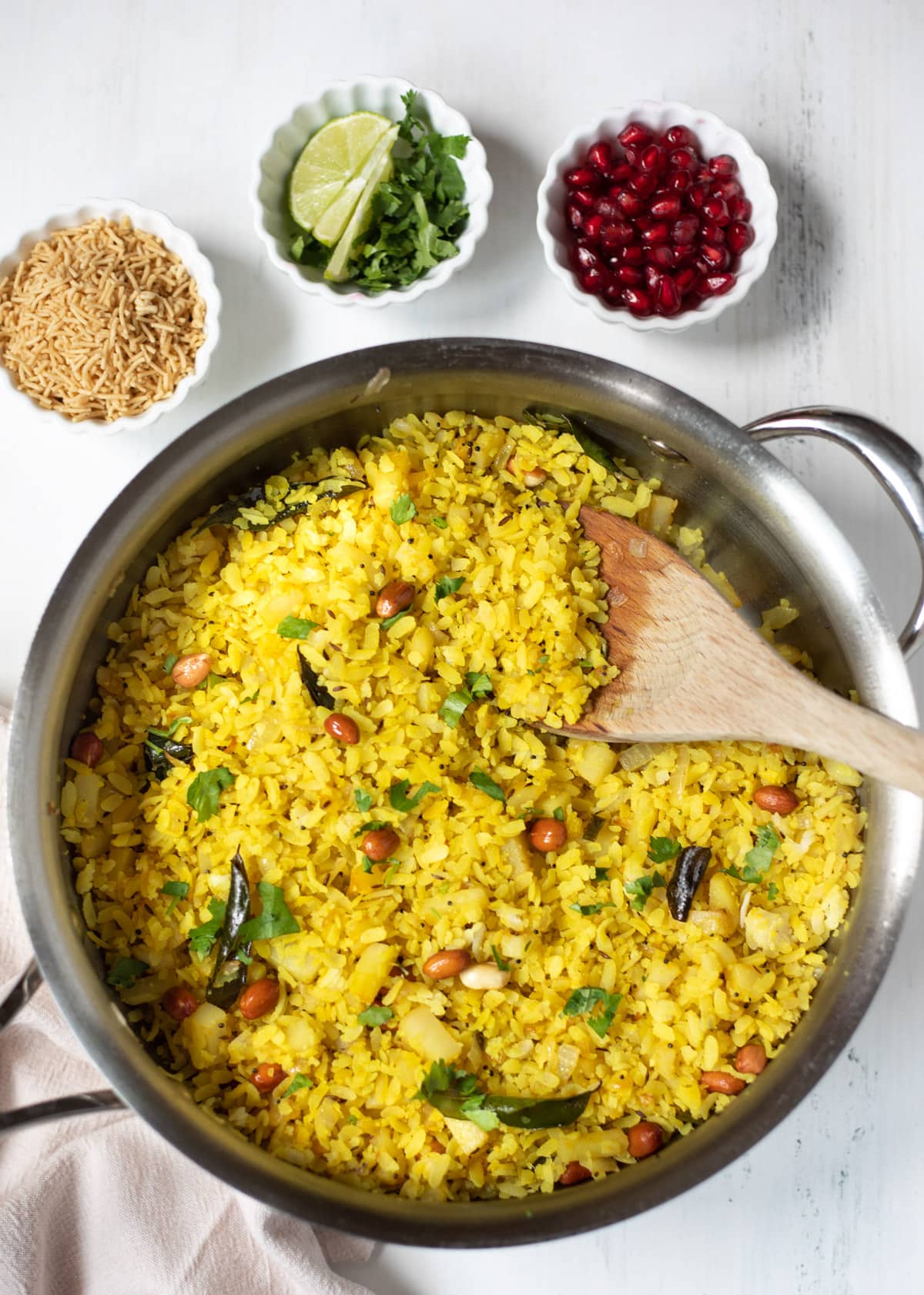
Tips to Make Perfect Fluffy Poha
Follow these tips to make the perfect, moist and fluffy poha:
- I usually use medium or thick (preferred) variety of poha for this recipe. Thin poha will become quite mushy, and you won’t get the right texture.
- Rinse the poha till it becomes soft and let it rest in the colander while you prep and sauté the onions and potatoes.
- While adding the potatoes to the poha, make sure to dice them up really small so that they cook quickly.
- You can add peanuts for an extra bit of crunch, and a touch of sugar will give it a wonderful taste. I highly recommend not to skip the sugar, as it balances the flavors very well.
- In case your poha seems a dry bit, sprinkle some water and mix it once.
- Garnishes are always a must for poha. The popular ones are lime juice, sev, and cilantro. You can also add sev or bhujia and pomegranate seeds.
- Storing Leftovers: Poha is always best enjoyed immediately, but if you are storing it for later use, then keep it in an airtight container. Sprinkle some water on top and reheat in the microwave.
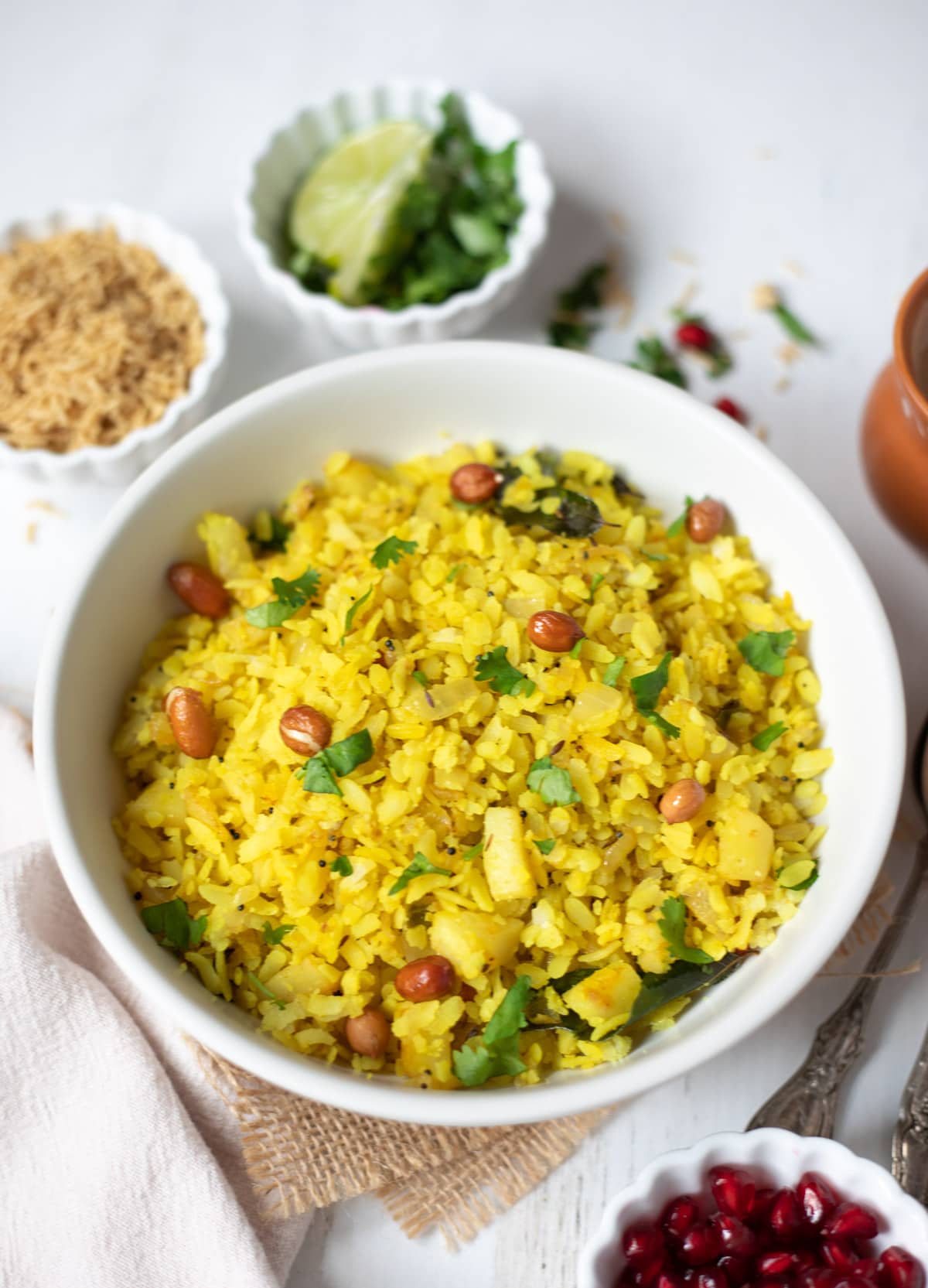
I hope you enjoy this easy and delicious breakfast! Don’t forget to share how you enjoyed it.
More Breakfast Recipes You’ll Love
Egg Bhurji (Spiced Indian Scrambled Eggs)
Moong Dal Chilla (Savory Lentil Pancakes)
Indian Masala Oats (Savory Oatmeal)
Maharashtrian Misal Pav (Sprouts Curry)
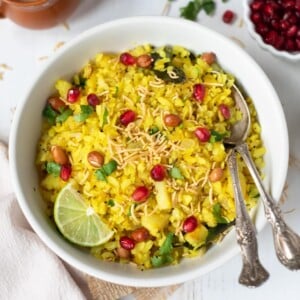
Poha (Easy Kanda Poha)
Equipment
Ingredients
- 2.5 cup Poha (flattened rice), medium or thick
- 2 tablespoon Oil , divided
- 2 tablespoon Peanuts , raw, optional
- 1/2 teaspoon Mustard Seeds (Rai), optional
- 1/2 teaspoon Cumin seeds (Jeera), optional
- 10-12 Curry Leaves (Kadi Patta)
- 2 Green Chili Pepper, diced, adjust to taste
- 3/4 cup Onions, diced
- 3/4 cup Potato, diced into 1/2-1 centimeter pieces
- 1/4 teaspoon Ground Turmeric (Haldi powder)
- 1/2 teaspoon Salt, adjust to taste
- 1/2 teaspoon Sugar, adjust to taste
- 1 tablespoon Lime juice
- 1 tablespoon Cilantro leaves (Corainder), chopped
Garnishes when serving (optional)
- Sev , as needed, or bhujia
- Pomegranate seeds, as needed
- Coconut, freshly grated
Instructions
- Add poha to a strainer and rinse under running water until the water runs clear. Make sure all the poha is wet. Let it rest while you sauté the other ingredients.
- Heat a heavy bottom pan on medium-high heat. Add oil to the pan and let it heat.
- (optional )Add the peanuts and saute for 1-2 minutes while stirring continuously. When they are roasted, take out in a plate and set aside.
- Add cumin seeds and mustard seeds to the oil and let them sizzle.
- Add the curry leaves and green chili pepper. Then, add the diced onions and stir well. Saute for a minute.
- Add the diced potatoes. Mix well with the onions. Now cover the pan with a lid and cook on medium-low heat until the potatoes are cooked completely. Open the lid and stir. Break a potato piece with the spatula to ensure it is cooked well. (It is important to cut the potatoes into small pieces so they cook quickly in 3-4 minutes)
- Add turmeric, salt, sugar, and poha to the pan. Mix gently until all the poha gets the yellow turmeric color. Change to low heat and cover the pan for 2 minutes. This helps to heat the poha.
- Turn off the heat and open the lid. Sprinkle lime juice, add back the roasted peanuts (if using).
- You can taste test and adjust salt as needed. Garnish with cilantro leaves and any optional garnishes.

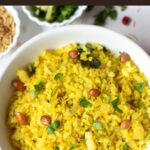
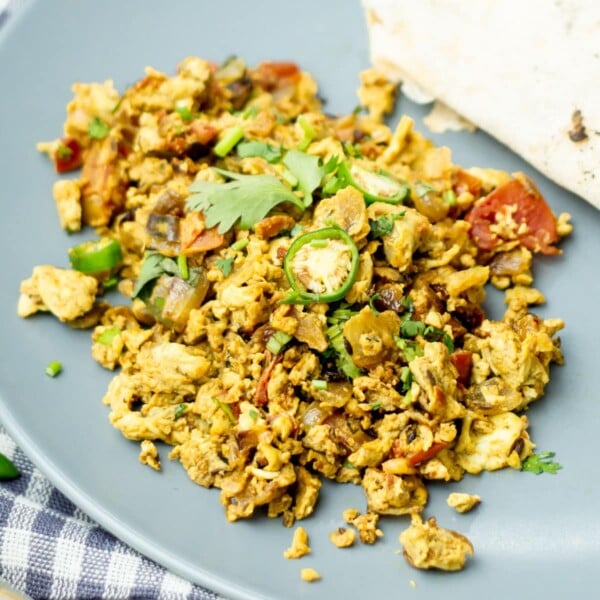
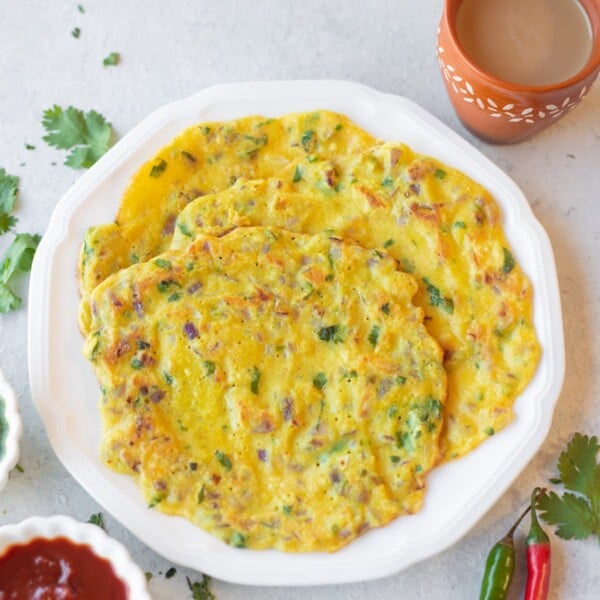
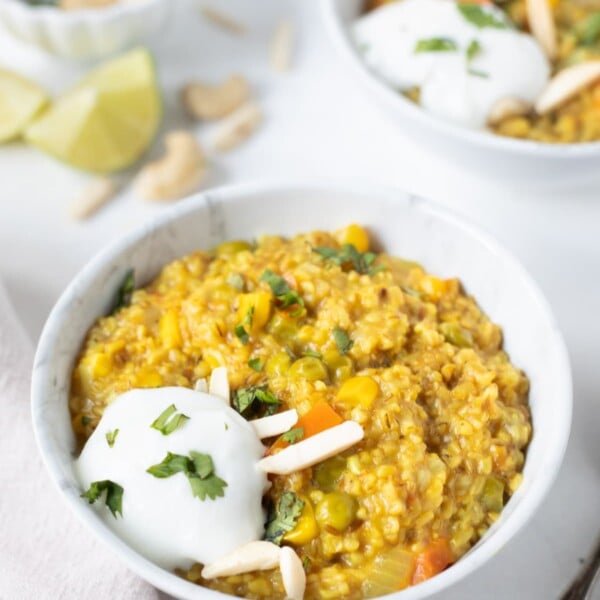
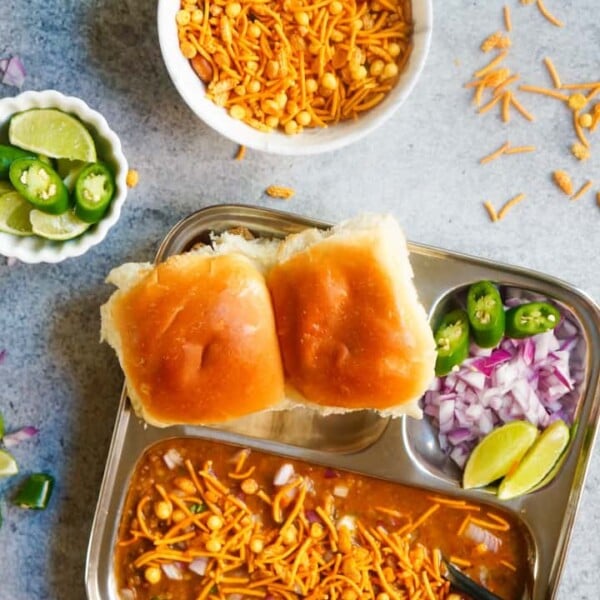
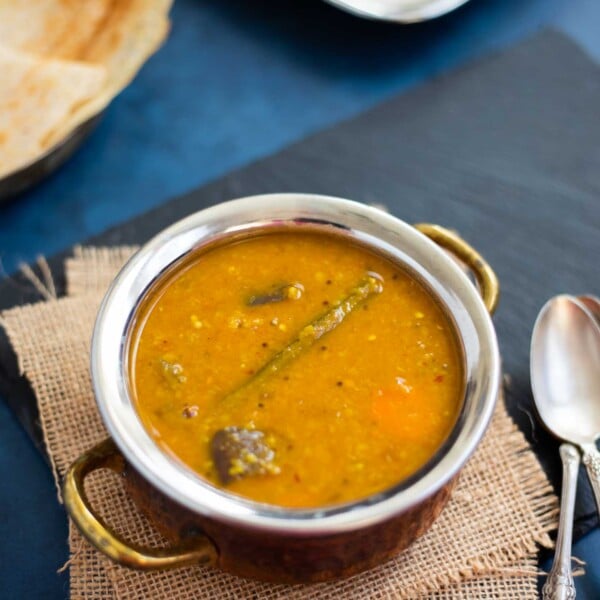
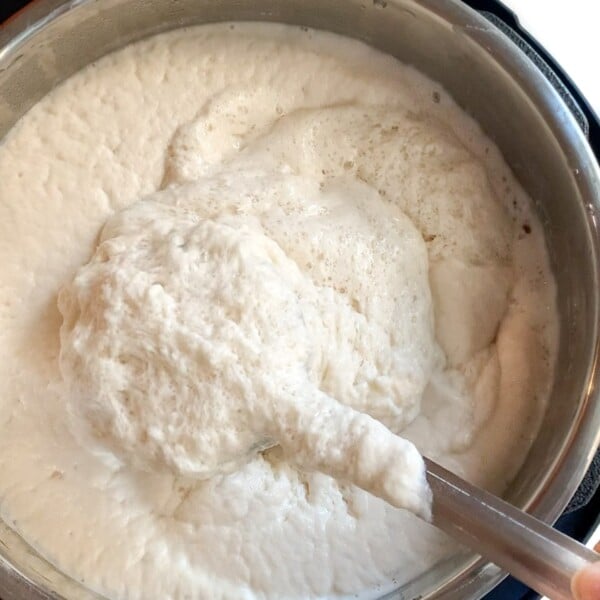
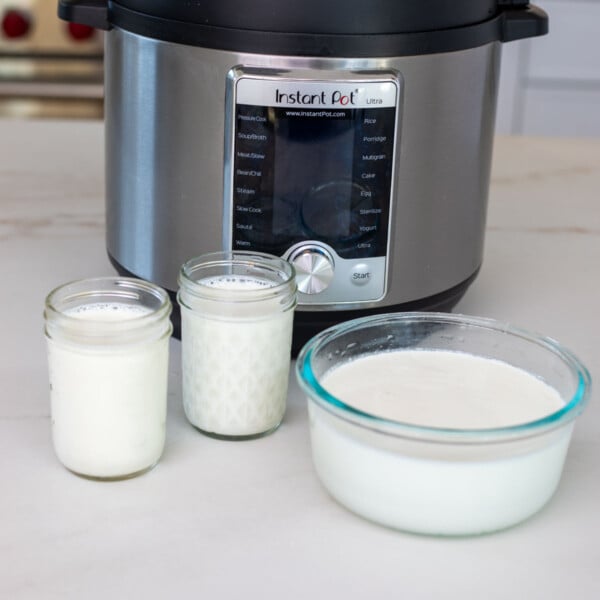
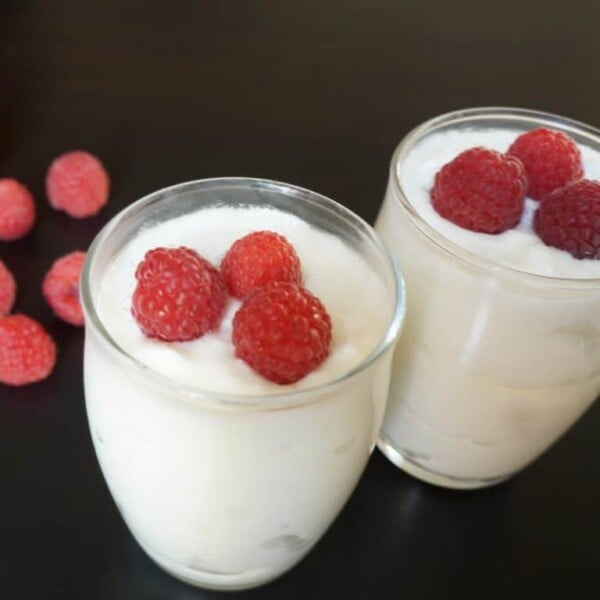








this is really tasty!! just like we had it in India 🇮🇳
Hi- So glad it brought back those delicious memories 🙂